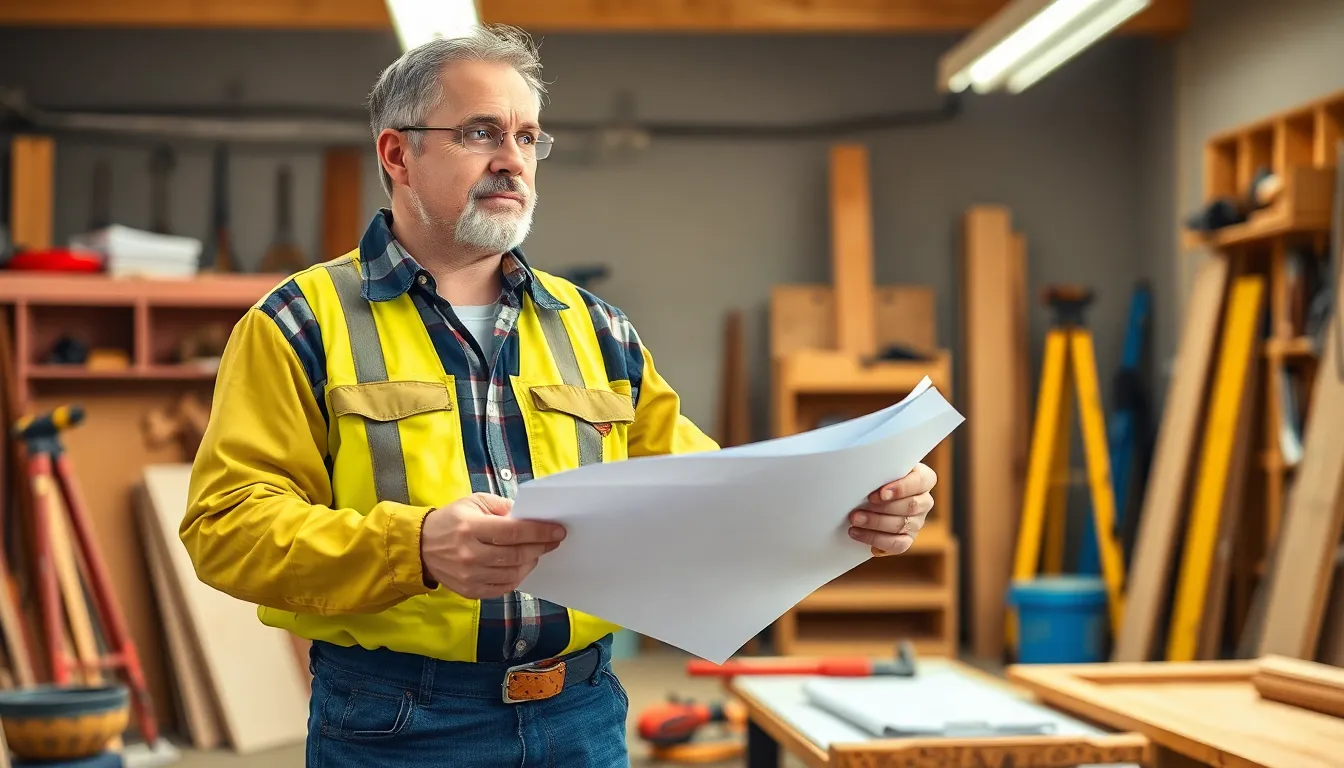Thinking about tackling that long-overdue home project? Before diving into the world of hammers, nails, and paint swatches, one crucial detail needs your attention: the home improvement contractor license in Pennsylvania. It might not be the most thrilling topic, but trust us, it’s more exciting than discovering your neighbor’s secret obsession with lawn flamingos.
Table of Contents
ToggleOverview of Home Improvement Contractor License PA
The home improvement contractor license in Pennsylvania holds significant value for professionals in the field. This license ensures that contractors meet state requirements, promoting quality work and consumer protection.
Importance of Licensing
Licensing serves as a mark of credibility for home improvement contractors. Clients often seek licensed professionals, recognizing that a valid license indicates adherence to state regulations and standards. Contractors without a license cannot offer comprehensive warranties or guarantees, which diminishes client trust. Licensed contractors also gain access to industry resources and networks, enhancing their business opportunities. Adhering to licensing requirements helps maintain high professional standards throughout Pennsylvania.
Legal Benefits of Being Licensed
Being licensed offers various legal advantages. Contractors can legally operate and engage in contracts for home improvement projects within Pennsylvania. Licensure protects them from potential legal issues related to unpermitted work. Licensed contractors can hold legal rights to enforce contracts and pursue claims in cases of disputes. They also maintain compliance with local and state regulations, avoiding penalties and fines associated with unlicensed work. Overall, legal protection fosters a stable business environment and builds consumer confidence.
Requirements for Obtaining a License

Obtaining a home improvement contractor license in Pennsylvania involves specific criteria. Candidates must meet age and experience requirements and provide necessary documentation to ensure they qualify.
Age and Experience Requirements
Candidates must be at least 18 years old to apply for a home improvement contractor license in Pennsylvania. Experience plays a critical role in eligibility. Applicants need a minimum of two years of practical experience in the home improvement field. This experience can consist of hands-on work or relevant educational training. Prospective licensees should demonstrate proficiency in home improvement tasks and an understanding of relevant building codes and regulations.
Required Documentation
Submitting the correct documentation is vital when applying for a contractor license. Applicants must provide proof of their identity, such as a government-issued photo ID. Additionally, they need to submit evidence of their work experience, which could include letters from previous employers or contracts. Proof of business registration or a tax identification number may also be required. It’s crucial to ensure that all documents are accurate and complete, as incomplete applications can delay the licensing process.
Application Process
The application process for a home improvement contractor license in Pennsylvania involves several key steps.
Steps to Apply
Begin by gathering necessary documents. Proof of identity and evidence of work experience are crucial. Complete the application form accurately, ensuring all details reflect the documents provided. Submit the form along with supporting documents to the appropriate licensing authority. Expect a review period after submission, which varies based on volume. Preparation for a potential interview might be necessary if further clarification is needed.
Application Fees
Prepare to pay application fees when submitting for a home improvement contractor license. The fees in Pennsylvania vary by municipality and can range from $50 to $200. Additional costs may arise, such as background checks or additional certifications. Verification of the exact fees with local licensing offices is important, as they often dictate the financial requirements of the application.
Renewing Your License
Renewing a home improvement contractor license in Pennsylvania is crucial for maintaining legal compliance and business credibility. Understanding the renewal requirements ensures continued operation within the state’s legal framework.
Renewal Timeline
Renewal typically occurs every two years. It’s important to begin the process at least 90 days prior to the license expiration date. The Pennsylvania Department of Licensure mails renewal notices, but relying solely on this notice isn’t advisable. Contractors are responsible for tracking their renewal dates. Late renewals may incur additional fees, so timely submissions are essential to avoid penalties.
Continuing Education Requirements
Continuing education is mandatory for license renewal. Contractors must complete a minimum of four hours of approved continuing education courses. These courses focus on the latest building codes, safety regulations, and business practices. Selecting accredited programs ensures compliance with state standards. Documenting course completion is vital, as proof may be required during the renewal process. Engaging in ongoing education not only fulfills requirements but also enhances professional knowledge and skills.
Common Challenges and Solutions
Navigating the home improvement contractor license in Pennsylvania presents several challenges. Understanding regulations and addressing rejections are crucial elements that professionals encounter.
Understanding Regulations
Compliance with local regulations is a primary challenge for contractors. They must familiarize themselves with specific laws that pertain to their region. Each municipality in Pennsylvania has its own set of rules, and adhering to them ensures legal operation. Contractors might struggle with the complexity of these regulations. Seeking guidance from industry associations or legal experts can simplify this process. Having access to resources helps minimize confusion and mitigate potential legal issues.
Addressing Rejections
Receiving application rejections can be frustrating for contractors. Mistakes during the application process often cause these setbacks. Thoroughly reviewing submission materials before filing reduces the likelihood of errors. When rejections occur, contractors can learn from feedback provided by licensing authorities. Responding promptly with corrections or additional information increases the chances of approval. Documenting all communications throughout this process provides clarity and helps in future applications.
Navigating the home improvement contractor licensing process in Pennsylvania is crucial for anyone looking to establish a successful business. By understanding the requirements and maintaining compliance with state regulations, contractors can enhance their credibility and protect themselves and their clients.
Staying informed about renewal processes and continuing education is equally important for long-term success. As the industry evolves, ongoing learning ensures that contractors remain competitive and knowledgeable.
Ultimately, obtaining and maintaining a home improvement contractor license not only fosters trust with clients but also contributes to a more professional and reliable home improvement landscape in Pennsylvania.



